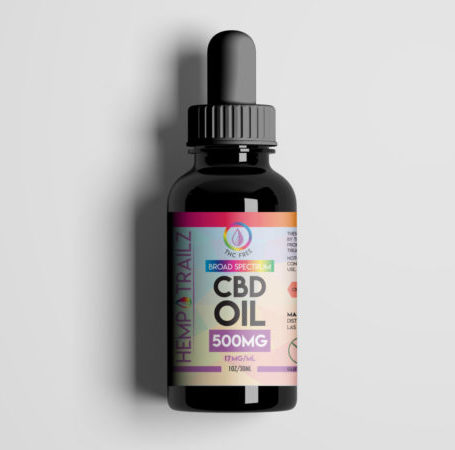Table of Contents
CBD And Diabetes: Using CBD Oil to Rebalance the Blood Sugar
Science has been researching cannabinoids in relation to treating the symptoms and causes of diabetes. Maintaining a balanced homeostatic system seems to be the key to the new treatment of this disease based on cannabis Sativa compounds. Though there is no cure yet, some of its symptoms can be mitigated with hemp flowers and extracts.
Diabetes is a set of metabolic diseases caused by the body’s inability to regulate the amount of sugar, especially glucose, in the blood. Glucose levels are regulated by hormones such as insulin, which is produced in the pancreas. Diabetes can cause serious long-term complications, such as cardiovascular disease, stroke, or damage to the kidneys and eyes.
The cannabinoid system is related to blood sugar
In recent years, more and more studies are confirming anecdotal evidence provided by diabetes sufferers and showing that CBD oil has beneficial effects. The anti-inflammatory properties of CBD and also THC, mitigate arterial inflammation, a very common symptom of diabetes, while its neuroprotective effect reduces nerve inflammation and pain.
Cannabinoids also act as vasodilators, which improve blood circulation and exert an antispasmodic function on muscles and the gastrointestinal system. The restless legs syndrome caused by diabetes could also be mitigated with cannabis, making the patients sleep better. Recent laboratory studies have shown that the endocannabinoid system could be responsible for stabilizing the blood sugar level, which is the main problem of this disease. Unfortunately, they are only laboratory research; there is currently no cannabinoid-based therapy for diabetes.
CBD and Diabetes: Relief of diabetes symptoms with CBD
Outside of laboratories and within the home of diabetes sufferers, we find all sorts of anecdotal evidence that cannabinoids are effective in treating eye diseases, chronic pain, sleep disorders, and other ailments associated with diabetes. How the diabetes patient is treated also depends on whether they have other complications and their general health. Some patients supplement their cannabinoid therapies.
If you’re a user of CBD and diabetes sufferer, you must know that may whet your appetite at first, but in the long run, it has the opposite effect and may protect against obesity. Cannabis extracts with varying proportions of THC, CBD, and other cannabinoids and terpenes, or just CBD alone, are thought to be beneficial for arterial and heart health.
These same cannabis or hemp extracts can be used to prepare topical creams that relieve neuropathic pain that is often associated with diabetes. On the other hand, a possible risk that you’re exposed to as a user of CBD and diabetes patients is hypoglycemia, since it is feared that glucose levels will drop without the patient realizing it until it could be too late.
All kinds of exercise carried out on a regular basis, along with a healthy and balanced diet will reduce the risk of diabetes and serves to control the blood sugar level of people with this disease. Diabetes sufferers should also moderate or quit alcohol and tobacco use.
Share these articles and products with your friends and earn 15% Commissions on sales of our CBD, Delta 8, HHC, THC-P, AND THC-0 THCA and Magical mushroom products that for the first time in history products that can get you high can be legally sold online. Our Software tracks cookies FOR LIFE so every time you or a friend orders you make 15% of the total order. It’s Free to sign up and takes 10 seconds to set up your link. Does your dispensary pay you 15% CASH BACK for every person you bring to them? If not, then join the Red Emperor Collective of friends we have over 70 products that can be chosen from. The average Order is $150. Click Here To Join for Free!
Unlocking the Potential: CBD and Diabetes
In the realm of alternative medicine, cannabidiol (CBD) has garnered significant attention for its potential health benefits. One area where CBD has shown promise is in the management of diabetes. With an increasing number of people turning to natural remedies, it’s crucial to understand the relationship between CBD and diabetes, and how it might offer hope for those living with this chronic condition.
Understanding Diabetes and Its Challenges
Diabetes, a metabolic disorder characterized by high blood sugar levels, affects millions worldwide. It comes in different forms, with type 1 and type 2 being the most common. Type 1 diabetes results from the immune system attacking insulin-producing cells in the pancreas, while type 2 diabetes develops due to insulin resistance or inadequate insulin production. Both types pose significant health risks, including heart disease, nerve damage, and kidney failure.
Managing diabetes typically involves medication, dietary adjustments, and lifestyle changes. However, conventional treatments may not always provide optimal results and can come with adverse side effects. This has led many individuals to explore alternative therapies like CBD.
Support our affiliate at THCA4cheap.com. Sure, you can buy your CBD from anywhere, but are they trying to help find the Antidote to the Covid Vaccine??? EXACTALLY.
Exploring the Potential of CBD in Diabetes Management
CBD, a non-psychoactive compound derived from the cannabis plant, has emerged as a potential adjunct therapy for diabetes. Research suggests that CBD may exert its effects through various mechanisms, including:
- Improving Insulin Sensitivity: Insulin resistance is a hallmark of type 2 diabetes. Studies have indicated that CBD may enhance insulin sensitivity and glucose tolerance, potentially helping to regulate blood sugar levels.
- Reducing Inflammation: Chronic inflammation plays a role in the development of insulin resistance and other complications associated with diabetes. CBD possesses anti-inflammatory properties, which could mitigate inflammation and its detrimental effects on metabolic health.
- Managing Neuropathic Pain: Diabetes often leads to neuropathy, causing nerve damage and chronic pain. CBD’s analgesic properties may offer relief from neuropathic pain, enhancing the overall quality of life for individuals with diabetes.
While more extensive clinical trials are needed to fully understand CBD’s impact on diabetes, preliminary findings are encouraging. Many individuals have reported improvements in glycemic control, reduced reliance on traditional medications, and enhanced overall well-being with CBD supplementation.
Navigating the Frequently Asked Questions about Diabetes and CBD
As interest in CBD as a potential therapy for diabetes grows, so too do questions surrounding its safety, efficacy, and practical application. Here are answers to some commonly asked questions:
1. Is CBD Safe for Individuals with Diabetes?
- CBD is generally considered safe, with few reported adverse effects. However, it’s essential to consult with a healthcare professional before incorporating CBD into your diabetes management regimen, especially if you’re taking other medications.
2. How Should CBD Be Administered for Diabetes?
- CBD can be consumed in various forms, including oils, capsules, edibles, and topical creams. The most suitable administration method depends on individual preferences and desired outcomes. Some may find sublingual oils or capsules more convenient for consistent dosing, while others may prefer topical applications for localized relief.
3. Can CBD Replace Traditional Diabetes Medications?
- CBD should not be viewed as a replacement for conventional diabetes medications prescribed by healthcare professionals. Instead, it may complement existing treatments and potentially enhance their effectiveness. Any adjustments to medication should be made under the guidance of a qualified healthcare provider.
4. Are There Any Potential Drug Interactions with CBD?
- CBD has the potential to interact with certain medications, including blood thinners and anticonvulsants. It’s crucial to inform your healthcare provider about any CBD supplementation to prevent adverse interactions and ensure safe co-administration with other medications.
5. Is CBD Legal for Diabetes Management?
- The legal status of CBD varies depending on geographical location. In many regions, CBD derived from hemp containing less than 0.3% THC (the psychoactive compound in cannabis) is legal for therapeutic use. However, it’s essential to verify local regulations regarding CBD before purchasing or using it for diabetes management.
Embracing the Potential of CBD in Diabetes Care
As research into CBD and its therapeutic applications continues to evolve, it’s becoming increasingly evident that this natural compound holds promise for individuals living with diabetes. From improving insulin sensitivity to alleviating neuropathic pain, CBD offers a multifaceted approach to diabetes management that warrants further exploration.
However, it’s essential to approach CBD supplementation with caution and in conjunction with conventional medical advice. While CBD may offer benefits for some individuals, it’s not a panacea, and its effects can vary from person to person. By staying informed, consulting healthcare professionals, and making informed decisions, individuals with diabetes can harness the potential of CBD as part of a comprehensive approach to managing their condition.





